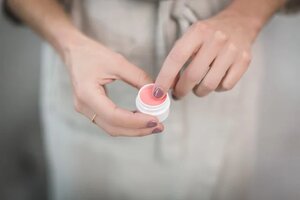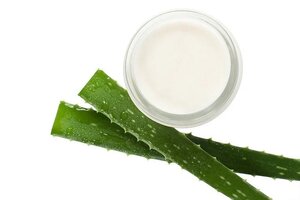Did you know that the skin is the largest organ in the human body? As such, it is just as important...
How to Prevent and Heal Dry Chapped Lips
Dry, chapped lips can be an uncomfortable and unsightly problem that affects people of all ages and backgrounds. Whether you're dealing with flaky, peeling skin or painful cracks and splits, dry lips can interfere with everyday activities like eating, speaking, and even smiling. While there are many potential causes of dry lips, including weather conditions, dehydration, allergies, and certain medications, there are also plenty of simple strategies you can use to prevent and heal this common issue.
Reasons For Dry, Chapped Lips
Understanding the root causes of dry and chapped lips is the first step to effectively treating and preventing the issue. Here's a deeper look into the most common reasons behind this widespread issue:
- Thin Skin: The skin on our lips is much thinner than the skin on the rest of our body. This thinness makes lips more vulnerable to environmental factors, leading to quicker dehydration.
- Lack of Oil Glands: Unlike other parts of the skin, lips do not have oil (sebaceous) glands. This means they don't produce natural oils that keep the skin moisturized, leaving them prone to dryness.
- Environmental Factors: Exposure to harsh weather conditions, such as cold winds, low humidity, and intense sun, can strip the lips of their natural moisture.
- Dehydration: Not consuming enough water can lead to dehydration, which can manifest itself as dryness on the lips and skin. Proper hydration is vital for maintaining the moisture level in lips.
- Licking and Biting: Continuously licking or biting the lips can strip away their natural moisture. While it might provide temporary relief, it ultimately dries them out even more.
- Allergic Reactions: Certain lip products, foods, or medications might contain allergens or irritants that can lead to dryness or an allergic reaction on the lips. Ingredients like phenol, camphor, and some flavorings in lip balms can be particularly drying or irritating for some people.
- Medications: Some medications, especially those that treat acne or high blood pressure, can have side effects that result in dry and chapped lips.
- Vitamin Deficiencies: Lack of vitamins like B2, B6, and B12 can sometimes contribute to dry lips. Ensuring a balanced diet can help mitigate this cause.
- Breathing through the Mouth: People who breathe primarily through their mouth, especially during sleep, may experience drier lips due to the continuous airflow.
- Underlying Medical Conditions: Some health conditions, such as diabetes, hypothyroidism, and Sjogren's syndrome, can cause dry lips as one of their symptoms.
10 Tips to Prevent Chapped Lips
While treating chapped lips is essential, knowing how to prevent them in the first place is equally, if not more, important. After all, prevention is always better than cure. Here are some expert-recommended strategies to help keep those lips luscious and free from chapping:
- Stay Hydrated: Drinking plenty of water is fundamental. Keeping yourself well-hydrated ensures that your skin, including your lips, gets the moisture it needs from within. Aim for at least eight glasses daily, adjusting based on activity level and climate. Click here to learn more about staying hydrated!

- Use a Lip Balm: Find a hydrating lip balm that suits your needs and make it a staple in your pocket or purse. Opt for formulas that are rich in emollients like beeswax, shea butter, or coconut oil. For daytime, choose a balm with SPF to protect your lips from the sun's harmful rays.
- Avoid Lip Licking: It might seem like a quick fix, but continuously wetting your lips with saliva can actually exacerbate dryness. Saliva evaporates quickly, taking with it any moisture on the lip surface.
- Exfoliate Gently: Exfoliating once a week with a gentle lip scrub can remove dead skin cells, allowing lip balms to penetrate more effectively. You can even make a DIY scrub at home using sugar and honey.
- Humidify: If you live in a dry climate or use heating during the winter, consider investing in a humidifier for your home. This will help maintain a moist environment, benefiting not just your lips but your entire skin.
- Dietary Choices: Foods rich in omega-3 fatty acids, like flaxseeds, walnuts, and fatty fish, can help maintain your skin's lipid barrier, which is crucial for retaining moisture. Additionally, ensure you're getting enough vitamins, particularly B vitamins, to support overall skin health.
- Protect Against Harsh Weather: In cold or windy conditions, protect your lips with a scarf or a face mask. This physical barrier can reduce the drying effects of the weather.
- Choose Lip Products Wisely: Whether it's lipstick, gloss, or balm, always check the ingredients. Avoid products with potential irritants like camphor, phenol, or certain flavorings, especially if you know you're sensitive to them.
- Stay Away from Smoking: Smoking can dry out the lips, not to mention the harmful effects of the chemicals in cigarettes. Consider quitting or reducing your smoking habits for the sake of both your lips and overall health.
- Nightly Lip Care Routine: Before going to bed, apply a thick layer of a nourishing lip mask or balm. Nighttime is when the skin goes into repair mode, so giving your lips extra care during this period can make a significant difference.
How to Heal Your Dry, Chapped Lips
When prevention measures fall short, and you find yourself with the discomfort of dry, chapped lips, fear not. We've got you covered with tried-and-true remedies to restore that soft and supple texture. Here are the best ways to treat and heal chapped lips:
- Intensive Lip Balms: Not all balms are created equal. Look for healing balms rich in emollients such as lanolin, shea butter, or petroleum jelly. These ingredients create a barrier to seal in moisture and promote healing.
- Overnight Lip Masks: Much like face masks, there are lip masks specifically formulated to deeply hydrate and repair your lips. Apply a generous layer before bed and wake up to significantly softer lips.
- Natural Oils: Natural oils like coconut oil, almond oil, or jojoba oil are great for the lips. These oils can deeply moisturize and provide a protective layer against external aggressors.

- Aloe Vera: Known for its soothing properties, aloe vera can provide relief to irritated lips. Applying natural aloe vera gel can help reduce inflammation and provide a hydrating boost.
- Honey: A natural humectant, honey draws moisture from the air and locks it into your skin. Applying a thin layer of raw honey on your lips can speed up the healing process due to its moisturizing and antibacterial properties.
- Cucumber: This refreshing veggie isn't just for spa days and salads. Slicing a cucumber and placing it on your lips for a few minutes can provide instant relief and hydration.
- Avoid Harsh Lip Products: If your lips are severely chapped, it's best to avoid lip products with alcohol, fragrances, or irritants. Stick to simple, moisturizing ingredients until your lips have healed.
- Hydrate from Within: While applying products externally can provide relief, it's equally important to ensure you're hydrated internally. Drink plenty of water and consider incorporating hydrating foods such as watermelon, cucumber, oranges into your diet.
- Vitamin E: This vitamin is known for its skin-healing properties. Puncturing a Vitamin E capsule and applying it directly to the lips can be very beneficial. It promotes cellular restoration and provides deep hydration.
- Avoid Picking: As tempting as it might be to peel off flaking skin, this can exacerbate the problem and even lead to bleeding or infections. Allow your lips to heal naturally, and rely on exfoliation methods instead.
Consistency is the key to healing chapped lips. Regularly applying these remedies, especially before bed when the skin is most receptive to healing, can make a world of difference. With a bit of patience and care, your lips will soon return to their naturally soft and smooth state, ready to face the world with confidence!
Related Content:






